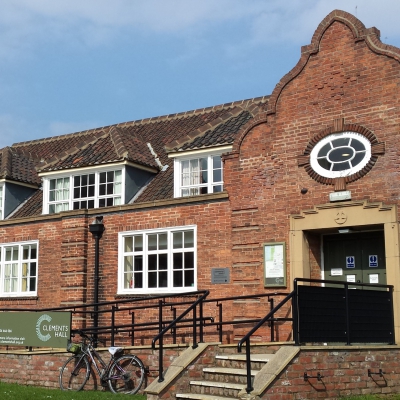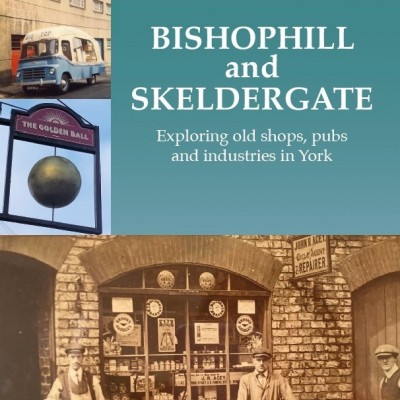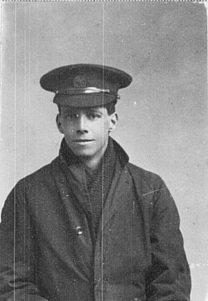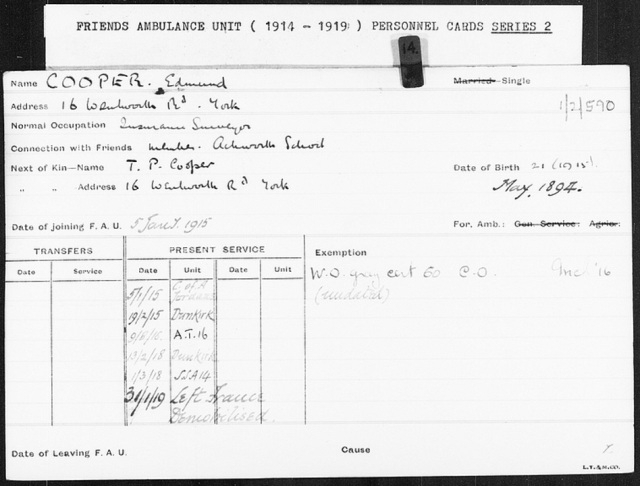



View navigation
 Edmund Cooper and his brothers Alfred and Laurence Parsons Cooper, 16 Wentworth Road, York.
Edmund Cooper and his brothers Alfred and Laurence Parsons Cooper, 16 Wentworth Road, York.Having left Ackworth, the Quaker Boarding school, at the age of fifteen, Edmund Cooper was working as a surveyor for the Yorkshire Insurance Company when war broke out. His parents had became pacifists and Quakers in response to the Boer war, and all three of their sons opted to work in active non-combatant roles during World War 1.
Edmund had been on the point of enlisting with the Army Medical Corps in 1914 when Arnold Rowntree recommended he join the recently formed Friends’ Ambulance Unit. In an interview with Peter Liddle in 1979 Edmund agreed that the FAU represented a ‘proper compromise’ between the wish to play an active part in the war effort, and the Quaker objection to killing.
The Ambulance Unit was voluntary, and his participation was made possible by his employer continuing to pay his salary throughout the War. Edmund Cooper left for Dunkirk in February 1915 and worked as an orderly on Ambulance Train 16 until, in 1918, he was transferred to an FAU motor ambulance convoy. As a result of his actions with the convoy he was decorated with the Croix de Guerre.

Edmund Cooper left a vivid account of his experiences in the form of letters home to his parents in York. These are now held in the Liddle collection in Leeds University Library.
After the war Edmund volunteered with the American Friends’ Service Committee in Germany, before resuming his career in insurance with Friends’ Provident.
His brother Alfred worked as an NER railway clerk. He was granted exemption from military service on CO grounds and undertook Work of National Importance (WNI) under Pelham, market gardening at Malton.
A third Quaker brother, Laurence Parsons, was granted absolute exemption, on grounds of his essential work at Olympia Oil and Cake Mills in Selby.